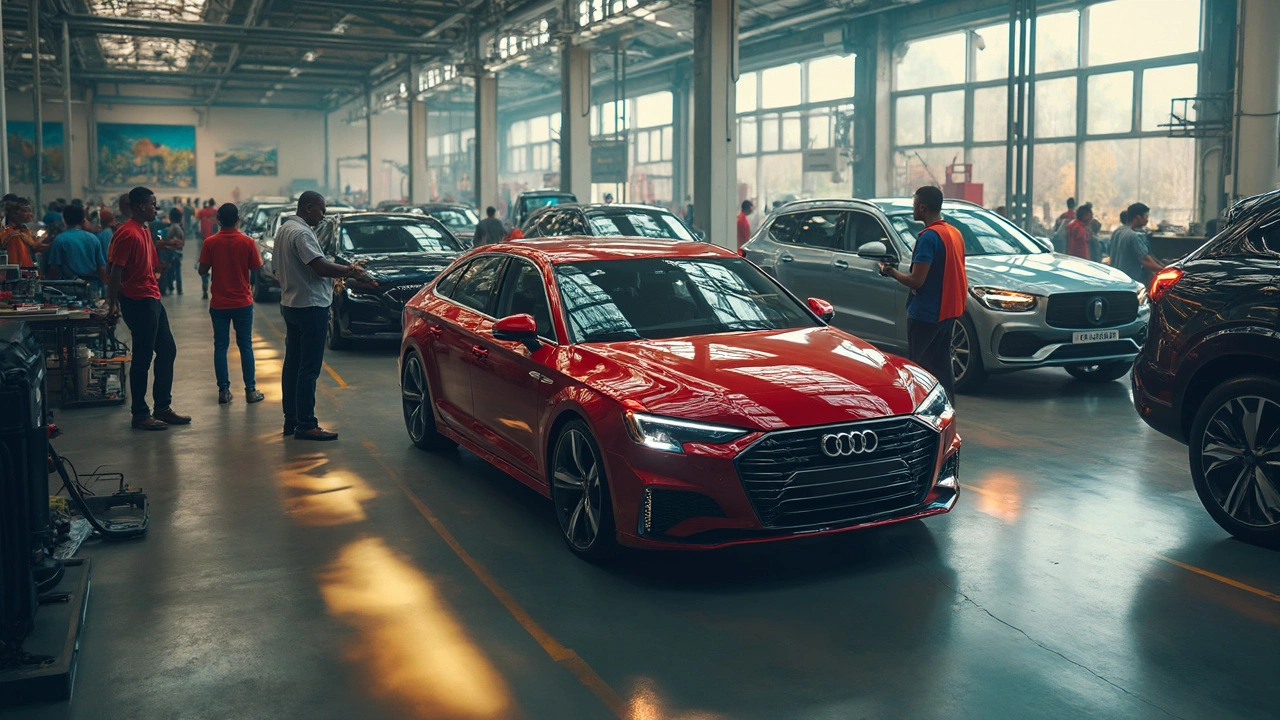Cars Made in Africa – What’s Driving the Continent’s Auto Boom?
Africa is no longer just an importer of cars. In the last few years local factories have started to roll out models that suit the roads, climate, and buying power of African drivers. This shift means new jobs, cheaper maintenance, and a chance for the continent to keep more money inside its own economy.
Local Brands Taking the Wheel
Names like Innoson in Nigeria, Kantanka in Ghana, and Mobius in South Africa are now building small sedans, SUVs, and light trucks on home soil. These companies focus on rugged designs that can handle potholes and high temperatures while keeping the price low. By using locally sourced steel and components, they cut import costs and pass the savings to buyers.
Some South African firms partner with Asian OEMs to assemble knock‑down kits, turning the country into a regional hub. The result is a growing mix of fully indigenous models and hybrid products that still count as cars made in Africa because the final assembly happens here.
Key Challenges and How They’re Being Tackled
Infrastructure is a big hurdle – many roads are still under construction, and power outages can halt production lines. Governments are responding with road improvement programs and incentives for renewable energy use in factories. Reduced tariffs on raw materials also help manufacturers keep costs down.
Financing is another snag. Traditional banks often view auto startups as risky, so many firms turn to venture capital or government‑backed loan schemes. These funds are usually tied to goals like creating jobs or meeting local content requirements, which pushes the industry toward sustainability.
Skill gaps are being closed through technical schools and apprenticeship programs. Companies like Toyota South Africa partner with vocational institutes to train welders, electricians, and designers, creating a pipeline of talent ready for the next generation of vehicles.
Consumer perception also matters. Early models had mixed reviews, but as reliability improves, more drivers trust locally built cars. Social media reviews and word‑of‑mouth recommendations are now boosting sales faster than traditional advertising.
Looking ahead, electric vehicles (EVs) could reshape the market. Some African manufacturers are already testing battery‑powered vans for city deliveries, taking advantage of the continent’s abundant solar potential. If government policies support EV charging infrastructure, we could see a home‑grown electric car lineup within the next decade.
In short, cars made in Africa are moving from a niche curiosity to a mainstream option. With better roads, smarter financing, skilled workers, and a focus on durability, the continent is building an automotive sector that could export as much as it imports. Keep an eye on the evolving landscape – the next big African car brand might be just around the corner.
Which Car Is Manufactured in Africa? The Surprising Boom Beyond India
Africa is making its mark in the car manufacturing scene, with several countries rolling out cars for both local and global markets. This article explores the top cars produced in Africa, the companies behind them, and how these local industries compare with India’s giants. You'll learn which models are built on African soil, what this means for the future of the global car market, and how local manufacturers overcome unique challenges.
